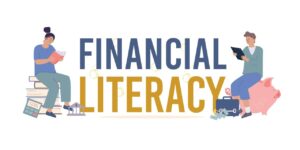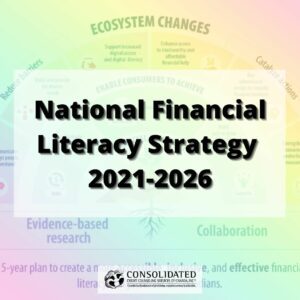In late May, the Ontario government made a major announcement at the Toronto Stock Exchange. For the first time in 25 years, the province plans to overhaul the high school graduation requirements. This will include a new financial education component.
According to a 2022 Royal Bank of Canada poll, nearly 83% of young Canadians reported needing more information and support on money management. Sixty-eight percent reported feeling overwhelmed and needing help. Given these statistics, this is a much-needed revamp to the provincial high school curriculum. The new personal finance component will help students make sound financial decisions.
Key highlights from the new high school graduation requirements
Here are key highlights that will assist students in developing practical life skills:
- A new financial literacy graduation requirement as part of the grade 10 math course. Starting in 2025, students will learn how to manage a household budget, save for a home, learn to invest, and protect themselves from financial fraud. They will need a passing grade of 70%.
- Launch career coaching for Grade 9 and 10 students in 2024-25. Explore new opportunities in STEM and skilled trades (allocating up to $14 million).
- Reintroducing home economics education to teach life skills, such as sewing and cooking.
Why the Ford government is modernizing the high school program
The last major overhaul of the Ontario Secondary School Diploma was in 1999. This included the removal of the Ontario Academic Credit (OAC) and the introduction of community involvement hours.
There are several benefits to the new high school diploma requirements, including:
Helping to better align students’ education with their career paths.
Giving them the life skills needed to succeed when they graduate.
Making Ontario a stronger economy.
“It will ensure high school students have the knowledge they need to successfully manage their finances, from budgeting to investing,” said Giles Gherson, President and CEO, Toronto Region Board of Trade.
Several provinces nationwide have also embedded financial literacy into their high school curriculum. For example, the Saskatchewan government announced similar financial literacy measures starting in the 2024-25 school year. British Columbia has incorporated financial literacy into its math program. Alberta has integrated it into its career and life management program. Furthermore, Newfoundland and Labrador created a Grade 10 program that encompasses financial education.
Support children while learning financial literacy skills
As a parent, you can start having regular conversations about money in your household. Ask your children what they’re learning in class. See how you can give your kids real-life examples. Here are a few ideas to get you started:
If your child is learning about investing in the stock market in school. You can share how you’re investing money for your retirement. This way, they can learn about compound interest and see how it applies to the real world.
Another opportunity to have a money conversation is when you pay your credit card bill. You can show them that you’ll be charged interest if you don’t pay the balance in full each month.
You can also discuss how paying your monthly bills helps build your credit history and credit score. This may include your cell phone bill, credit cards, or mortgage. Then, you show them how to read a credit report.
Remember, each family is unique. Parents must decide how comfortable they are with having these age-appropriate money conversations. Saijal Patel, Founder & CEO, Saij Wealth Consulting Inc. said, “By equipping our youth with financial knowledge, we are empowering them to navigate life’s financial landscape with confidence and competence.”
How parents can support their children’s career goals
Aside from having open discussions with your kids about money, parents can also ask their children about their career goals. Knowing what type of career they’d like to pursue, will help you figure out what post-secondary education they’ll need to get.
There are plenty of scholarships, bursaries and grants available for prospective students. For example, the Ontario Learn and Stay Grant program is accepting applications for the 2024-25 school year. This program will offer grants to students who wish to pursue a career in nursing, paramedicine, or medical lab technology.
The Ontario government is also Making It Easier to Enter Skilled Trades by introducing new measures to attract youth to join the skilled trades industry. Jobs in this field include electricians, carpenters and plumbers. As part of this program, a new apprenticeship pathway and online job-matching platform will be launched.
These programs will help students start off on the right foot in an increasingly competitive and complex workforce.
Financial education to help the next generation succeed
With these new measures, it will help youth to succeed beyond the classroom. Financial education will assist in their decision-making ability. When they become adults, they’ll know how to create an emergency fund, open a savings account and build a financial plan to achieve their goals.
Starting this fall, the provincial government will start consultations with parents and experts. Parents will be able to provide input on what practical life skills students should learn in the classroom.
The final thoughts shared by Stephen Lecce, Minister of Education, “Our bottom line: ensuring students graduate with practical learning that leads them to better jobs and bigger paycheques.”
It’s important to have discussions about your financial goals with your family members. If you would like to assess your financial health, you can talk to one of our debt management experts.





